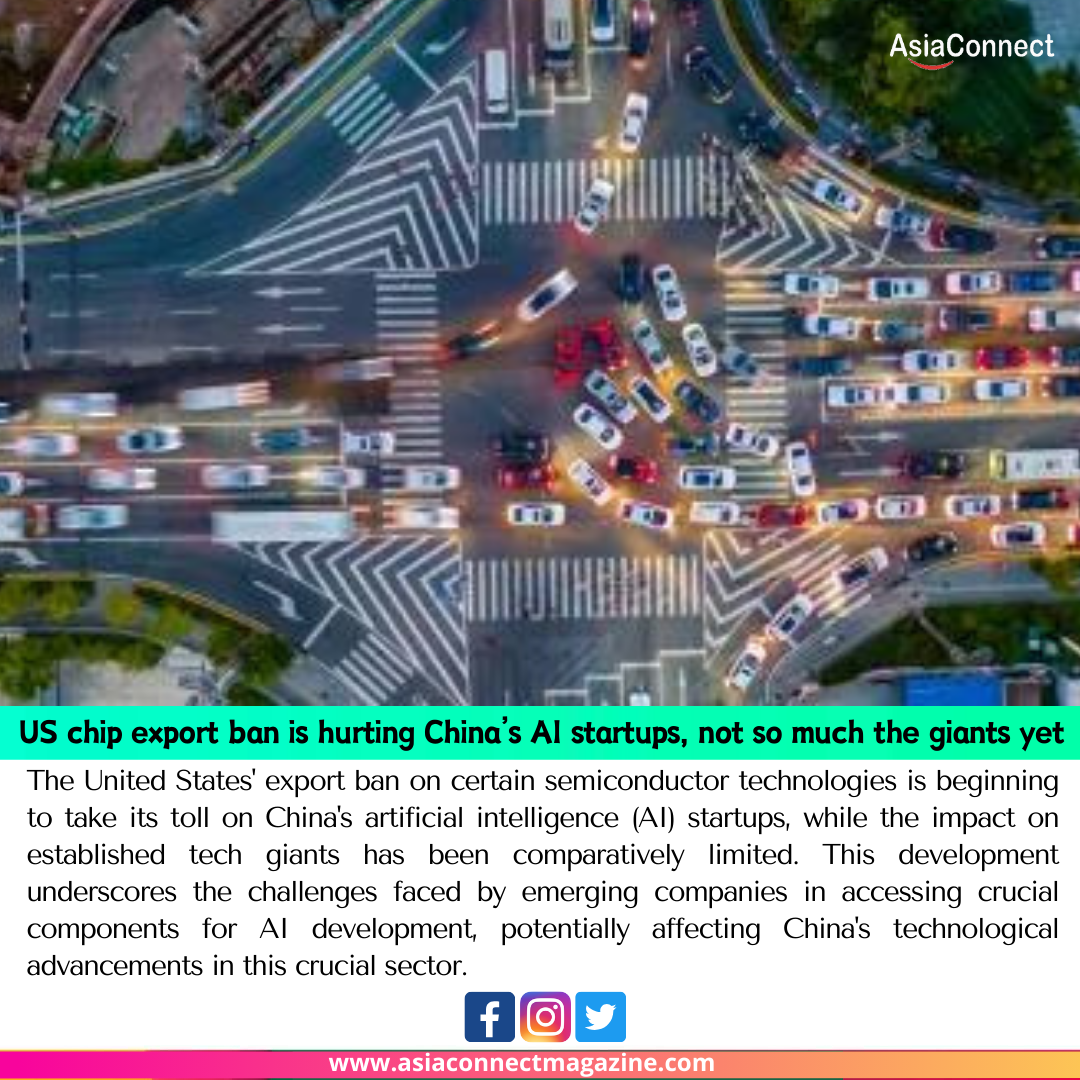The United States’ export ban on certain semiconductor technologies is beginning to take its toll on China’s artificial intelligence (AI) startups, while the impact on established tech giants has been comparatively limited. This development underscores the challenges faced by emerging companies in accessing crucial components for AI development, potentially affecting China’s technological advancements in this crucial sector.
The export ban, primarily targeting semiconductors and related technologies, has restricted Chinese companies’ access to cutting-edge hardware crucial for AI applications. While major tech giants may have stockpiled or diversified their suppliers, smaller AI startups often rely on specific chipsets and technologies for their operations.
One of the key challenges faced by AI startups is their dependence on specialized hardware, especially designed for AI and machine learning tasks. These startups often require access to the latest semiconductor technologies to stay competitive and innovate in a rapidly evolving field. The export ban has disrupted the supply chain for these startups, limiting their ability to access the necessary components.
In contrast, larger tech companies in China, often referred to as the “AI giants,” have been better equipped to navigate the challenges posed by the export ban. These companies, with substantial resources and diversified supply chains, have shown resilience in the face of restrictions. They can leverage their market influence and financial strength to secure alternative sources for critical components, minimizing the immediate impact of the ban.
However, the long-term implications for even the giants are not entirely immune. The export ban highlights the geopolitical risks associated with the global supply chain for semiconductors. While major Chinese tech companies have weathered the storm so far, the potential for extended restrictions or a widening scope of the ban could pose challenges even for these industry leaders.
The export ban’s impact extends beyond individual companies to the broader landscape of technological innovation in China. AI startups play a crucial role in driving innovation and competition, contributing to the overall dynamism of the tech sector. If these startups face difficulties in accessing advanced technologies, it could stifle innovation and hinder China’s ability to compete on the global stage in AI development.
To address these challenges, there are indications that China is intensifying efforts to achieve semiconductor self-sufficiency. Investments in domestic semiconductor production and research and development have increased, reflecting a strategic shift to reduce dependence on foreign technology. However, building a competitive domestic semiconductor industry is a complex and time-consuming endeavor.
In navigating the current landscape, collaboration and partnerships could be key for both startups and established companies. AI startups might benefit from aligning with larger corporations that have the resources and experience to navigate the complexities of the semiconductor market. Such collaborations could provide startups with access to crucial technologies while offering established companies opportunities for fostering innovation and staying at the forefront of AI advancements.
In conclusion, the US chip export ban is having a disproportionate impact on China’s AI startups compared to the established giants. The challenges faced by startups in accessing cutting-edge semiconductor technologies highlight the vulnerabilities in the global supply chain. While major tech companies have shown resilience, the long-term consequences for the entire Chinese tech ecosystem, including potential impacts on innovation and competitiveness, remain significant. As geopolitical dynamics continue to shape the tech industry, finding sustainable solutions to these challenges becomes crucial for the continued growth and development of the AI sector in China.





